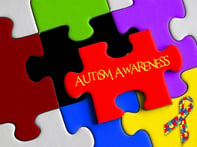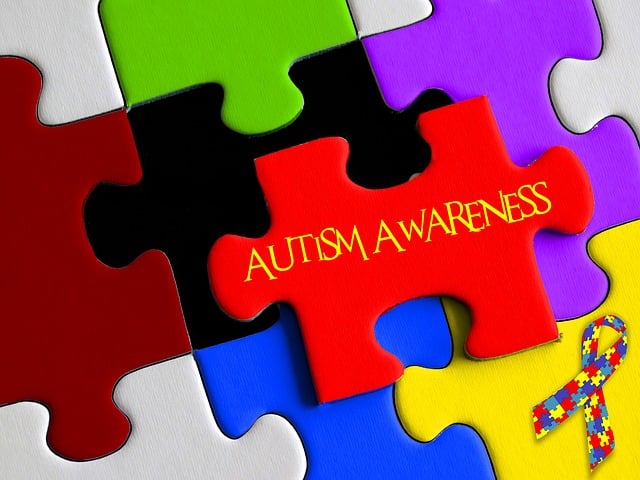Celebrate Autism Awareness & Acceptance Month With STAGES® Learning!
The chirping of birds in the morning, the budding flowers on the trees, and the influx of tax forms to be completed can only mean one thing: April is on its way. There are so many reasons to look forward to April – the warm weather, the blossoming gardens, and the celebrations of our planet, including Earth Day and Arbor Day. But in addition to these festivities of nature, it’s important to celebrate people, too. April is also Autism Awareness & Acceptance Month, and this April 2nd marks the 17th annual celebration of World Autism Awareness Day. Join Stages Learning in celebrating our autistic friends and family members through these fun and simple activities:
1. Wear Blue.
 Did you know that blue is the color of autism awareness? On April 2nd, over 150 countries in the world will glow blue throughout the month. You, too, can join the monumental movement by dressing up in blue on April 2nd and throughout the whole month. It’s not often you get to twin with the One World Trade Center in NYC, the White House in Washington, DC, and even the Great Pyramids of Giza in Egypt! Don’t forget to share your photos with the world by tagging #LightItUpBlue on all forms of social media.
Did you know that blue is the color of autism awareness? On April 2nd, over 150 countries in the world will glow blue throughout the month. You, too, can join the monumental movement by dressing up in blue on April 2nd and throughout the whole month. It’s not often you get to twin with the One World Trade Center in NYC, the White House in Washington, DC, and even the Great Pyramids of Giza in Egypt! Don’t forget to share your photos with the world by tagging #LightItUpBlue on all forms of social media.
2. Adopt the Ribbon.
The puzzle ribbon of the Autism Society has become a simple yet universal way of showing support for autism advocacy and awareness. It is not only a representation of the diversity of Autism Spectrum Disorder (ASD) but is also a distinguished symbol of hope – hope for increased research, stronger interventions, and greater inclusiveness of autistic people in all spheres of society. Join the ribbon movement by purchasing a magnet or pin that you can wear throughout Autism Awareness & Acceptance Month and beyond.
3. Educate Yourself and Your Family.
Education is the key aspect of awareness. Speak to your friends and family, especially your autistic children, about how much they understand about ASD. If your children go to school with autistic peers, brainstorm ways your children can make those students feel more at ease in the classroom. Help your children understand that ASD has a neurological basis and that autistic individuals are often not in control of their behavior. Even though it may seem that autistic peers may not be actively seeking out friendships, everybody needs friendship, and your children can help autistic students feel welcome and wanted in and out of the classroom.
4. Walk It Out.
Autism Speaks presents multiple walks throughout April. Walking doesn’t just present a great opportunity to show support for autistic people in your community and beyond, but it also is the start of a great family habit. Research shows that exercise is particularly important for autistic children and may even decrease behavioral symptoms. Consider starting up a walking routine not just with your family but with others in your community to increase engagement and support for autism awareness and advocacy. And if you prefer a harder challenge, Autism Speaks also offers “Team Up” events for runners, cyclists, athletes, and cheerleaders of all kinds.
5. Volunteer in Your Community.
 Transform awareness into action by volunteering in your community and beyond. Schools are often looking for parent volunteers in inclusion and special education classrooms, or perhaps an after-school program designed for autistic children would like an extra adult mentor. Also keep in mind that services for autistic adults often need volunteers, as well. Or, if you feel more comfortable volunteering in an administrative capacity, the Autism Society of America and other advocacy offices will often need volunteers to help fundraise or assist with events. Every role is significant, no matter how small it may seem.
Transform awareness into action by volunteering in your community and beyond. Schools are often looking for parent volunteers in inclusion and special education classrooms, or perhaps an after-school program designed for autistic children would like an extra adult mentor. Also keep in mind that services for autistic adults often need volunteers, as well. Or, if you feel more comfortable volunteering in an administrative capacity, the Autism Society of America and other advocacy offices will often need volunteers to help fundraise or assist with events. Every role is significant, no matter how small it may seem.
6. Share Your Story.
If you feel comfortable, share your story of living or working with autism through the Autism Society. Every parent, family member, teacher, or therapist has a story to share. Or, if your autistic child would like to share a story, help your child craft a story that best supports his or her authentic voice. Stories are powerful, and even the smallest of stories has the ability to make the largest ripples. You just never know who you might inspire.
7. Donate to the Cause.
There are plenty of organizations, local and national, that support awareness and advocacy for autism. Choose one that feels right for you, and remember that there is no such thing as a donation too small.
8. Give a Gift

And last but certainly not least… everybody loves presents! Stages Learning offers a variety of products designed uniquely to support autistic children and autism education. Consider purchasing language builder cards or emotion mirrors to empower a child to express him or herself authentically, or perhaps encourage free play with puzzles, wiggle cushions, or memory games to create joyful memories together. Even if you do not know a specific child who would benefit from these gifts, keep in mind that schools and after-school programs are always grateful for donations.
While Autism Awareness & Acceptance Month may only last thirty days, the need for autism awareness and advocacy is always great. Stages Learning would like to challenge you to prolong the spirit of Autism Awareness & Acceptance Month and adopt an act of caring to commit to every month throughout the year in support of those living with and affected by ASD. It could be an activity suggested above, or it could be something personal to you. No matter how small the act, it will make a lasting impact in supporting the autism awareness and advocacy movement. Stages Learning is thankful for your commitment to helping autistic individuals flourish and lead independent, gratifying, and fulfilling lives.
Happy Autism Awareness & Acceptance Month!

Arianna Riccio
Arianna Riccio is a current Ed.M candidate in the Human Development & Psychology program at the Harvard Graduate School of Education. She aspires to pursue a PhD in Clinical/Counseling Psychology to become a practitioner, researcher, and consultant. She received a BA in French (Psychology minor) from Franklin & Marshall College in 2014 and served as an AmeriCorps*VISTA for the Boys & Girls Club of the Flathead Reservation in northwest Montana in 2016. Arianna’s hobbies include yoga, meditation, learning Capoeira, and having spontaneous discussions about the meaning of life.




